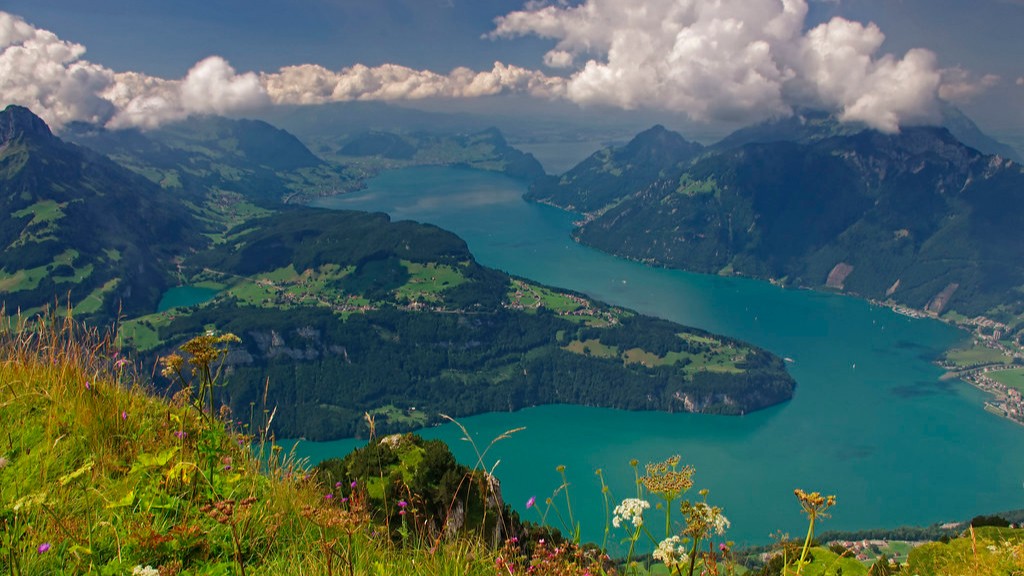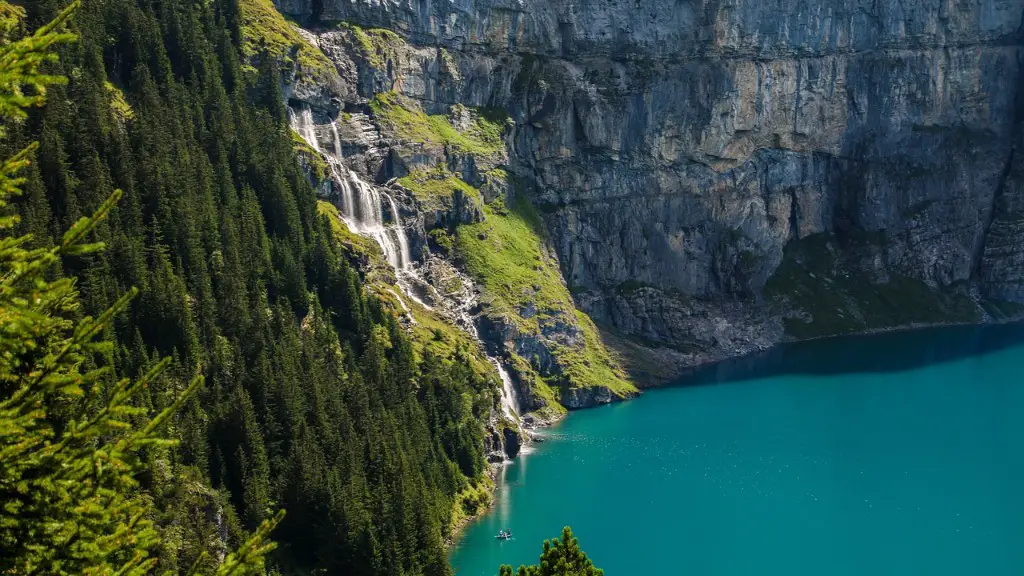Fishing and Boating
Lake Baikal is a popular destination for fishing and boating. With its pristine waters and abundance of fish, such as omul, lenok, and taimen, it’s no surprise that recreational fishing and boating is prevalent here. The lake also features some of the deepest waters, reaching a maximum depth of 1,642 meters. There are countless attractions for people looking to enjoy the lake, including boat excursions, fishing charters, camps, and more. Boats ranging from motorboats to houseboats are available for rent and sale, allowing for the perfect family outing, romantic cruise, or weekend adventure.
The lake’s waters provide ample opportunity for anglers to catch some spectacular fish. The waters host some of the world’s densest concentrations of omul, an endemic fish found only in Lake Baikal. Additionally, the lake is also home to dozens of other species, including lenok and taimen, which both have strong populations. For trophy anglers, the lake also hosts a healthy population of trophy size fish, such as burbot, grayling, and sturgeon, offering plenty of action.
Research
Lake Baikal is also used for research. Scientists have studied the lake for decades, looking into its unique eco-system, the environment, and its relation to the global climate. As the deepest lake in the world and the world’s largest source of freshwater, the lake provides an invaluable resource for research. Its waters are crystal clear, making it ideal for scientific exploration.
The research conducted in the waters of Lake Baikal has been invaluable in providing insight into the field of ecology. Scientists have studied the lake’s ecosystem in depth, observing the species and environmental interactions within. Additionally, researchers have also explored the lake’s geological features, providing valuable information about its geological structure.
The research conducted in Lake Baikal has been particularly beneficial for understanding our Earth’s environment and climate. The lake’s waters have absorbed vast amounts of climate-affecting gasses, such as methane and carbon dioxide, offering clues about our planet’s climate history. It’s also been used to measure the effects of global warming on biodiversity, providing data that can be used to ensure our planet’s health into the future.
Tourism and Recreation
As one of the world’s most beautiful and majestic lakes, Lake Baikal is an unmissable destination for tourists and adventurers. The lake’s stunning scenery, abundant wildlife, and peaceful atmosphere offer something for everyone. While there are countless activities to enjoy here, one of the most popular is simply taking in the views. Tourists flock to the lake to take in its breathtaking vistas, which stretch out along its 3730-kilometer coastline.
The lake is also a widely popular destination for its many resorts, hotels, and lodges. Visitors can stay along the lake’s beautiful coastline and enjoy the nature around them. Many of the resorts offer activities such as horseback riding, mountain biking, and skiing in the winter months. The lake also offers a wide range of tours, providing travelers with an opportunity to explore the lake by boat or even take a hot air balloon ride over its waters.
Additionally, visitors can enjoy a variety of watersports, including kayaking and fishing. There are several companies that offer kayak rentals and guided tours. Fishing enthusiasts will be sure to find some of the lake’s most sought after catches, including the world’s largest population of omul and lenok.
Culture and History
Lake Baikal is also steeped in history and culture. Its shores are home to a number of tribes and villages, each with its own distinct culture and traditions. These include the Buryats, which have an ancient and unique culture that continues to be preserved to this day. The lake’s waters are also the home of the almost-mythical nerpa, a species of freshwater seal that has lived in the lake for centuries.
The lake’s waters have also been an important source of sustenance for local people for centuries. The tradition of fishing and trading with fish is deeply ingrained in local culture, with many families taking part in the activity. The lake’s waters also host some unique traditional boats, such as the shashka, which is a large, flat-bottomed boat that’s propelled by the powerful winds of the lake.
Lake Baikal’s history of exploration is also worth noting. Since it was first explored by scholars centuries ago, the lake has been the source of numerous scientific and cultural discoveries, making for a fascinating source of exploration.
Sustainability
The waters of Lake Baikal are also important for its sustainability. The lake’s ecosystem is fragile, and its waters are sensitive to climate change and human activity. As such, economic and environmental sustainability is key to preserving the lake’s health.
The local people living and working around the lake have a deep respect and understanding of the environment, and they work hard to ensure its health and the surrounding ecosystem remains intact. The local government has also enacted a number of initiatives to encourage sustainability and protect the lake. These include sustainable fishing policies and restrictions on activities, such as mining and construction near the lake’s shores.
The lake’s ecosystem is also supported by organizations such as the Lake Baikal Foundation, which works to promote the lake’s health and sustainability. The Foundation also supports research and educational initiatives, helping ensure the lake’s future health and beauty.
Environmental Benefits
The importance of Lake Baikal to our planet’s health cannot be understated. The lake’s waters provide a wealth of environmental benefits, including serving as a buffer for global climate change. By storing climate-affecting gases, such as CO2 and methane, in its waters, the lake reduces the effects of global warming and climate change. The lake’s waters also help regulate temperatures in the region, moderating local weather patterns.
Additionally, by storing vast amounts of freshwater, the lake’s waters provide an invaluable source of clean drinking water for the surrounding region. This helps ensure that local communities have access to clean and safe drinking water, a vital resource in many areas.
Lake Baikal also serves as a shelter and habitats for countless species of plants and animals. As a unique lake with its own distinct ecosystem, the lake is home to some of the world’s rarest and most unique species, making it an essential part of the region’s biodiversity.
Religious Significance
Lake Baikal also has a deep religious significance. It is a sacred site for the Buryats, one of the region’s native peoples, who view the lake as a source of spiritual energy and healing. They believe that the lake is inhabited by the spirits of their ancestors, and it often serves as the backdrop for ancient rituals and ceremonies.
The lake also holds significance for the Buddhist monks living at nearby Igor Novikov’s Aedinoye Oro monastery. The monks believe that the calm waters of the lake offer a sense of peace and serenity, and that they provide an opportunity for spiritual exploration and rejuvenation.
The lake’s spiritual importance has been passed down through generations, providing a unique connection to the region’s history and culture. It is this same spiritual connection that draws visitors from around the world, inspiring and immense sense of awe and wonder.

